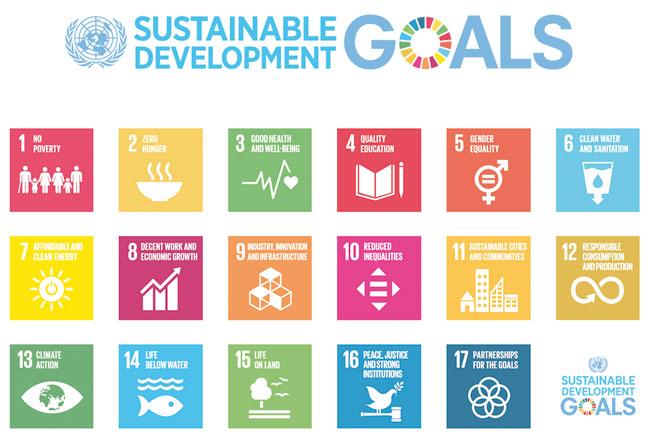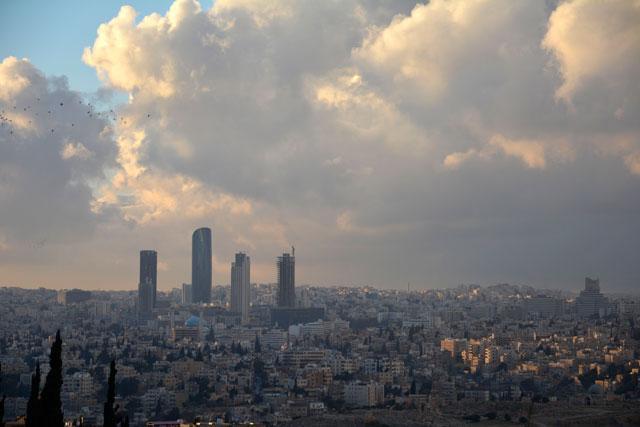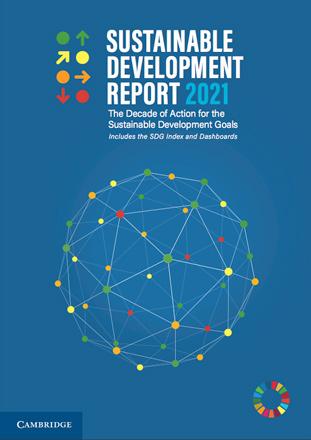You are here
Study ranks Jordan 80th in world, 5th in region in SDG index
By Ana V. Ibáñez Prieto - Jan 25,2018 - Last updated at Jan 25,2018

Photo courtesy of UN website
AMMAN — Jordan has ranked 80th worldwide and 5th in the Arab world in the Sustainable Development Goals (SDG) Index and Dashboards Report recently issued by the Sustainable Development Solutions Network, which analyses the SDGs performance of a total of 157 countries out of the 193 UN member states.
Released in cooperation with Bertelsmann Stiftung, this year’s edition of the study included additional metrics for the SDGs analysis along with several refinements to the methodology, leaving the results "not strictly comparable" with those of prior editions, according to the report.
The Kingdom obtained the best results in its performance on the SDG No. 1: No poverty, which the report considered as achieved based on statistics indicating that no citizen earns less than $1.9 per day.
“The SDG Index is a tool to engage stakeholders around overall progress made on SDGs. There is a strong correlation between poor and crisis affected countries and lower SDG Index rankings. Jordan ranking 5 in the Arab states means there are potential areas for improvement including availability of data for some of the SDGs and strengthening national data systems to monitor and report on progress,”
Sara Ferrer Olivella, country director, Jordan UNDP, told The Jordan Times.
Human rights researcher Sulaiman Sweiss told The Jordan Times that he "doubts" the reality of such advance, noting that "even the official figures show an increase in poverty in the past years, not to mention the last raise on the price of general goods such as bread, which will continue to burden the less privileged."
Hunger, gender equality, decent work and economic growth, industry innovation and infrastructure, life below water and life on land were the SDGs in which Jordan performed the worst, according to the study.
"Jordan went backwards on the official rankings released by the UN in the past years and I am not optimistic about the performance next year," Sweis said, noting that "we can not advance in the SDGs within the huge gender gap that we are still experiencing, with women accounting only for the 13 per cent of the workforce in Jordan."
"The SDG Index and Dashboards is aimed at assisting countries to identify priorities for action in order to achieve the 17 SDGs," the report said, pointing out that "the indicators and dashboards should help countries to pinpoint key implementation challenges."
In this regard, Gender Consultant at the International Labour Organisation (ILO) Reem Aslan told The Jordan Times that "the participation of women in the economy is very low," noting "the need to provide women with a better working environment and a better work-life balance."
Low wages, sexual harassment at work and the lack of transportation from home to the workplace are some of the issues preventing women from engaging in the labour market, according to the expert.
"When you look at the statistics you don't find women over 50 in the workplace," Aslan highlighted, noting that "the Social Security Law allows women to retire at an early age without warning them about the financial loss that comes with it, and many of them do not even have the chance to work because they start taking care of their parents once their children emancipate."
"In addition, we don't believe that the government or the employers are aware of the importance and the benefits of having more women in the workforce," she continued, noting the presence of studies aimed at raising awareness on the matter.
"However, we are starting to witness a mental shift derived from the work of non-governmental organisations," Aslan added, expressing that "we are lucky to have a few ministers committed with this issue, such as the minister of Social Development or the minister of Education."
Regarding the regional picture, Algeria topped the Arab world ranking achieving the 64th position worldwide, followed by Tunisia (65th), Morocco (73th) and the UAE (77th).
Lebanon stood close to Jordan achieving the 86th position worldwide, closely followed by Egypt (87th). Bahrain (92nd) and Oman (94th).
When asked about the regional scenario, Sweis highlighted the similarities between the official UN ranking and the Sustainable Development Solutions Network's ranking, noting that "many countries in the region have improved their situations despite the challenges they are facing, while Jordan remains in a very similar situation when compared to the previous years."
"The SDGs are not only about the economy and the statistical figures, they are about human rights," the researcher added, calling on the government to "reconsider the policies in this field if they want to see real advances".
Related Articles
AMMAN — Jordan tops the six Arab countries that achieved 66 per cent or above in the UN Sustainable Development Goals (SDG) Report.The repor
AMMAN — Jordan ranks 72 worldwide and fifth in the MENA region on the Sustainable Development Goals (SDG) index report.
AMMAN — Jordan has ranked 81st out of 162 countries on UN’s 2019 Sustainable Development Goals (SDG) report.The Kingdom has developed 10 ran


















